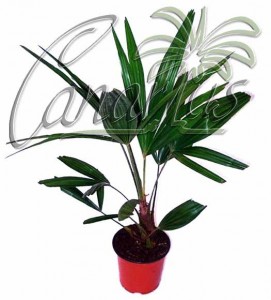Many new cycad species have been recently introduced in cultivation from China. Some species grow tall, while others are low, trunkless understorey plants. Most of them are from high elevation areas or inland regions, subjected to regular frosts. Some of them are bipinnate cycads with unique “double feather” leaves .

Developing bipinnate leaf of Cycas multifrondis
The new species of Cycas from China
The genus Cycas has a large number of species in China. Most of them have not been cultivated in the western world until a few years ago, and various new species have been only recently described by botanists. Many are from cold or cool regions. Most species come from Yunnan, which is an inland region of Southern China of very high biological diversity. Yunnan is highly populated and agriculture has taken over the landscape. Thankfully, most cycads occur on rocky and hilly areas which are somehow conserved. The mining industry is threatening some species. Collection of adult specimens for ornamental purposes is also a problem in habitat. In our shop you can purchase many of these species of Cycas, all reproduced from legally purchased seeds.
The Bipinnate Cycads
Some Chinese species of Cycas have bipinnate (double-feather) leaves. These are very graceful, unusual leaves, reminiscent of ferns and little else in the plant kingdom. Many bipinnate cycads are easy, fast growers like Cycas debaoensis. Some others are slow and difficult.
Only one species of bipinnate cycad was known in Europe since the early XXth century and this was Cycas micholitzii. In recent years the new species from China reached the market and achieved incredible prices in the world seed trade.

A bipinnnate cycad leaf
Cold hardiness of some Chinese species
Cycas debaoensis tolerated about -8 C (17 F) in California. It is an easy species, that grows back very fast. Collectors noticed that a heavy mulch improves hardiness.
Cycas longipetiolula grows well in cool and wet conditions and is hardy to short, light frosts of -2 C. Adult leaves are incredibly ornamental and fern-like, to about 4 m (12 ft.) tall.

Juvenile bipinnate leaf of Cycas longipetiolula
Cycas multifrondis and Cycas multipinnata. Little or nothing is known about frost tolerance of these bipinnate cycas. Both are new and beautiful, fast, easy growing species. As we see, they prefer the cool, wet winters of the Canary Islands, rather than the hot and dry summer. Cycas multifrondis is especially graceful because of the wavy leaf margins.
Cycas panzihuahuensis is widely thought to be one of the most cold-hardy of all the cycads. It is grown outdoors in the United Kingdom. It takes about -9 C (16 F) and below. It will quickly come back if defoliated.
Cycas diannanensis is another frost hardy species. It grows at about 1200 m (4000 ft) asl, but the highest populations, known in the market as Cycas diannanensis Mountain Form, achieves 1800 m (5900 ft) asl. Once again, the species is so new to growers do not know how hardy it exactly is.

Frost-hardy Cycas diannanensis, from high mountains in China.
Cycas guizhouensis, from the province of Guizhou stands about -8 C (17 F). It is a small, robust cycad with flat, shiny grey-green leaves and narrow leaflets. It is native to Guizhou, Guanxi and Yunnan, in China, where it grows in scrubby open forests on steep limestone slopes. Cycas guizhouensis is an easy grower and does well in Mediterranean and warm temperate climates, as it can take moderate frosts.

Cycas guizhouensis easily grows outdoors in Mediterranean Climates. We ship these plants to Europe.
All these species are new to many collectors and we will update the blog as soon as we learn more about their cold tolerance. We would like you to tell us your experiences with chinese cycads in your garden.
Try an increasing selection of chinese species in the Cycad section of our plant shop!





















